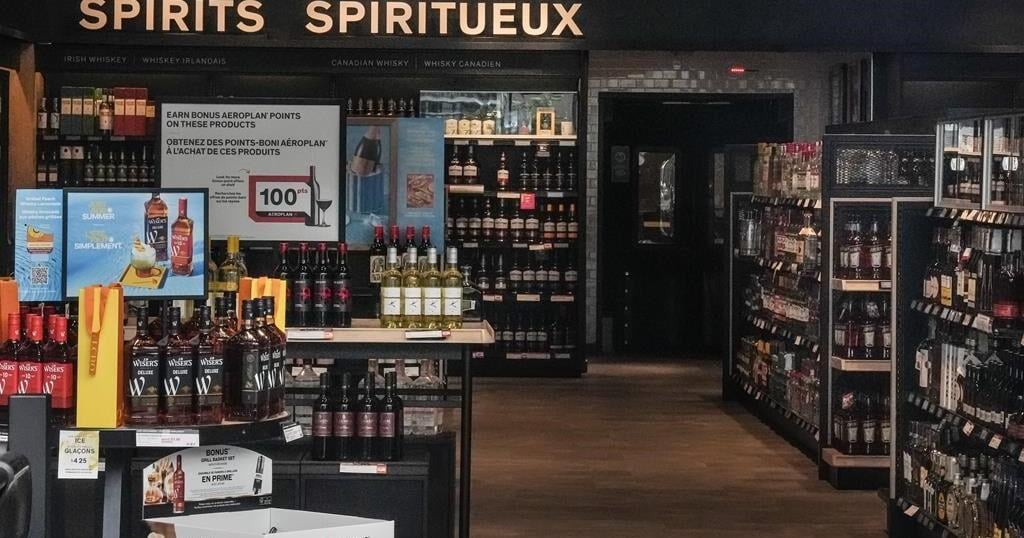A new poll suggests that just 15 per cent of Ontarians are personally affected by the LCBO’s ongoing strike, as the provincial government expands access to alcohol at other retailers.
That’s despite nearly 90 per cent of respondents in a new Leger poll saying they are aware that the job action is happening.
Fewer than one-third of Ontarians say they want the provincial government to intervene to end the 12-day strike at Ontario’s main liquor retailer, while about half are supportive of the striking union’s demands.
The Leger poll of 601 residents can’t be assigned a margin of error because online surveys are not considered truly random samples.
Approximately 10,000 workers at the LCBO walked off the job on July 5 after negotiations broke down.
The union representing the workers said the sides were headed back to the bargaining table Wednesday.
The poll conducted last weekend asked whether the government should use binding arbitration or legislation to ensure that LCBO stores open back up as soon as possible.
Twenty-nine per cent of respondents supported such a move, while 44 per cent opposed it.
The poll also asked if respondents support the union’s stated goals, including wage increases and more permanent positions. Just under half, 49 per cent, answered in the affirmative, while 25 per cent said they were not supportive.
The Ontario Public Service Employees Union has said the main issue is the province’s alcohol expansion plans, which would see ready-to-drink cocktails sold outside LCBO stores — a move it maintains poses an existential threat to the LCBO and could lead to major job losses.
Colleen MacLeod, chair of the union’s LCBO bargaining unit, has said the plan would “mean thousands of lost jobs, fewer hours for the 70 per cent of LCBO retail workers who are casual and struggling to make ends meet and hundreds of millions in dollars of lost public revenues drained from health care, education and infrastructure.”
The LCBO, a Crown corporation, nets the province $2.5 billion a year.
On Monday, the Ontario government sped up its expansion plan. The 450 stores across Ontario already licensed to sell beer, wine and ciders will be able to start ordering coolers and seltzers on Thursday and sell them as soon as they arrive.
The province has said it does not want to privatize the LCBO, and that the expansion is about giving people more choice and more convenience to buy alcohol.
Stephanie Ross, an associate professor in the school of labour studies at McMaster University, said Premier Doug Ford doesn’t have a great reputation when it comes to labour, given the high-profile disputes in recent years with health-care and education workers.
And he’s faced accusations of making policy moves that benefit friends in the private sector, a criticism that’s been levied against him in the LCBO dispute.
“There is a base of support for the union’s message here, both in terms of the working conditions that they’re trying to fight to improve, and in terms of the role that the LCBO plays in funding public services in the province,” she said.
But the public may not be as sympathetic to LCBO workers as it has been to some others, like in the Metro grocery workers’ strike last year, she said — a relatively straightforward fight by low-paid workers struggling to afford food against the industry being partially blamed for food prices.
“And so in the depths of a kind of historic cost-of-living crisis, I think it was easier to feel sympathy for such workers in terms of really having to fight to make up lost ground.”
That means the LCBO union has its work cut out to try and convince the public of its cause, said Ross, especially when consumers are already divided on the liquor privatization issue in the first place.
She said she thinks the union is doing a good job, however, of arguing the case for the LCBO as a public asset that helps fund important public services.
Larry Savage, a professor in the labour studies department at Brock University, said it’s clear that both the union and the Ford government “are working hard to win over the public to their respective positions.”
The union has a “potentially powerful strategy” to gain public support, but it’s not a surefire one, he said in an email.
This strategy “requires people to connect the dots between the privatization of the LCBO and the loss of a critical revenue stream that contributes billions to public services like health care and education.”
Meanwhile, the government’s strategy has been to try and leverage consumer frustration over the strike in order to drive more support for increased privatization, said Savage.
“It’s a high-risk strategy because a heavy-handed approach can sometimes backfire and garner greater sympathy for the workers and their cause.”
In the Leger poll, 32 per cent of respondents said they looked for alternative locations to buy alcohol due to the strike, while 15 per cent said they were concerned the strike could cause them to spend more money on alcohol.
Savage said while many consumers are likely inconvenienced, he also thinks most Ontarians are suspicious of the premier’s intentions when it comes to the LCBO: “It’s a classic case of private profits over the public good.”
This report by The Canadian Press was first published July 17, 2024.























